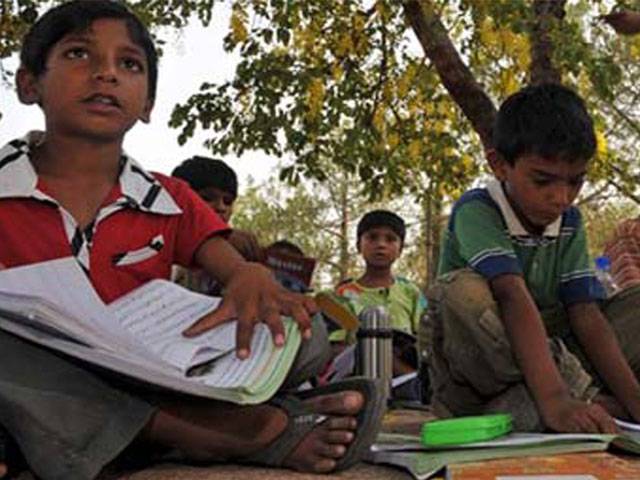KARACHI - Children of Pakistan continue to face different forms of violence, corporal punishment in homes, schools and places of work, sexual abuse, acid attacks, harmful traditional practices, and involvement in armed conflict.
This was unveiled in the annual report “State of Pakistan’s Children 2013” launched by the Society for the Protection of the Rights of the Child (SPARC) here on Saturday. The launch was attended by representatives from the media and civil society representatives.
The report provides an annual overview of developments in sectors that are of special importance to children including; child rights, juvenile justice, education, health, violence against children and child labor.
In this regard, the report contains a number of recommendations which can help policy makers and activists in formulating programs and policies which can be effective in promoting and protecting rights of children in Pakistan.
Presenting the findings of the latest report, SPARC’s National Manager Pakistan Kashif Bajeer highlighted that throughout the year, children in the country had to cope with a deteriorating health system, lack of educational opportunities and poor quality of education service delivery in the public sector, a punitive justice system, absence of an effective child protection framework (both in terms of legislation and administration), and employment in hazardous occupations which are detrimental to their physical and emotional development.
Renowned civil society activist and author Javed Jabbar, Regional Head SPO Mustafa Baloch, Iqbal Detho of Save the Children and Project Manager Brick Kiln Project SPARC Zahid Ahmed Thebo also discussed over the report.
The report highlighted that Pakistan is far from reaching its health related MDG 2015 and education related EFA goals. Throughout 2013, both the education and health sectors remained marred by institutional fragmentation, inadequate resources, corruption and a dismal state of service delivery.
In 2013-14, the situation was further compounded with the outbreak of the polio virus in the conflict affected areas of the country and subsequent attacks on health workers who were tasked with administering anti-polio vaccination to the children.
Furthermore, latest estimates reveal that approximately 25 million children of school going age are out of schools. Poor and vulnerable, a large number of these children often end up providing cheap labor to the burgeoning informal sector of the economy in Pakistan.
According to the latest estimates by leading international organizations, there are more than ten million child laborers in Pakistan. The report highlighted that in spite of these shocking figures, successive governments have done little to effectively address the growing menace of underage employment in the country. Throughout 2013, no provincial laws on child and bonded labor were passed and the administrative set up to deal with the employment of underage workers remained severely hampered by understaffing, lack of knowledge of child labor legislation and inadequate resources.
The report further revealed that children in Pakistan continued to face institutionalised and criminal forms of violence whereby they were subjected to corporal punishment in homes, schools and places of work, sexual abuse, acid attacks, harmful traditional practices, and involvement in armed conflict.
The situation was further compounded by the absence of legislation on major forms of violence against children. For instance, both the Criminal Law Amendment Bill 2013 and the Prohibition of Corporal Punishment Bill 2013 were progressive pieces of legislation dealing with important child protection issues: both lapsed in 2013.
Saturday, April 20, 2024
SPARC reports violence against children

Caption: SPARC reports violence against children
Volcanic eruptions in Indonesia affect thousands of passengers
10:30 AM | April 20, 2024
Freedom Flotilla prepares for humanitarian aid delivery to Gaza
9:14 AM | April 20, 2024
Sindh govt signs lease land accord for Dhabeji SEZ
April 20, 2024
Health activists for ban on small cigarette packs
April 20, 2024
Policitising Tragedy
April 20, 2024
Tehran to Rafah
April 20, 2024
A New Leaf
April 20, 2024
A Tense Neighbourhood
April 19, 2024
Dubai Underwater
April 19, 2024
Dangers of Deepfakes
April 20, 2024
Feudalism
April 20, 2024
Kite tragedy
April 19, 2024
Discipline dilemma
April 19, 2024
Urgent plea
April 19, 2024
ePaper - Nawaiwaqt
Advertisement
Nawaiwaqt Group | Copyright © 2024





